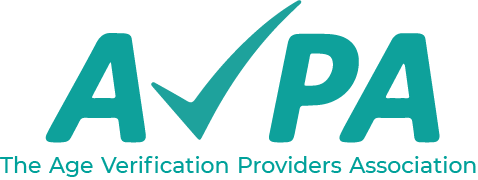Regulation for online betting and gambling (“gaming” in the USA) is specific to each jurisdiction. In Europe there are notably no specific EU-level requirements as Member States have guarded jealously their autonomy in this area, often to protect state-run lotteries.
In the UK, the Gambling Commission is a proactive regulator, implementing the Gambling Act 2005 which states “A person commits an offence if he invites, causes or permits a child (<16) or young person (<18) to gamble.”
There are three licensing objectives which support the whole basis of gambling regulation. The third states that “children and other vulnerable persons should be protected from harm or exploitation from gambling.”
The Licence Conditions Codes of Practice (LCCP) set out the regulations more specifically.
The Remote gambling Social Responsibility Code, section 3.2.11, states
Licensees must have and put into effect policies and procedures designed to prevent underage gambling and monitor the effectiveness of these.
Such procedures must include:
- Verifying the age of a customer before the customer is able to:
- deposit any funds into their account;
- access any free-to-play versions of gambling games that the licensee may make available; or
- gamble with the licensee using either their own money or any free bet or bonus.
-
warning potential customers that underage gambling is an offence;
-
regularly reviewing their age verification systems and implementing all reasonable improvements that may be made as technology advances and as information improves;
-
ensuring that relevant staff are properly trained in the use of their age verification procedures; in particular customer services staff must be appropriately trained in the use of secondary forms of identification when initial verification procedures fail to prove that an individual is of legal age; and
-
enabling their gambling websites to permit filtering software to be used by adults (such as parents or within schools) in order to restrict access to relevant pages of those sites.
Compliance with these is a condition of licences; therefore any breach of them by an operator may lead the Commission to review the operator’s licence with a view to suspension, revocation or the imposition of a financial penalty and would also expose the operator to the risk of prosecution.
Advertising
Also of note is Ordinary Code provision 5.1.8 which states that “Licensees should also follow any relevant industry code of practice on advertising, notably the Gambling Industry Code for Socially Responsible Advertising.”
The updated Industry Code for Socially Responsible Advertising requires that all social media ads must be targeted at consumers aged 25 and over unless the website proves they can be precisely targeted at over-18s.
This Sixth edition of the Code added a requirement that sponsored/paid-for social media advertisements must be targeted at consumers aged 25+. This measure adds an additional level of assurance around the age of consumers where operators do not hold any first party data about the consumers targeted, (i.e. where operators are wholly reliant on self-certified third party data, which may not always be correct.) This requirement relates solely to prospecting campaigns where the targeted audience is not already verified through the operators own age verification processes.
Given improvements in identification technology if a social media platform can verifiably prove that its age gating systems can prevent under 18s from accessing the gambling advertising content, then the Betting and Gaming Council, on the recommendation of operators and in consultation with other third parties, may consider whether to reduce the age filter to 18+.
Companies listed below have been approved for exemption from the 25+ age gating requirement after proving the accuracy of their targeting to the Betting and Gaming Council..
1. Facebook (not Instagram)
2. Snapchart
NB: Given these sites are both listed by Ofcom research into sites where children are registered as adults, we have concerns about these exemptions.
Betting adverts appearing on search engines must make clear that they are for over-18s, while the ads themselves must include safer gambling messages.

